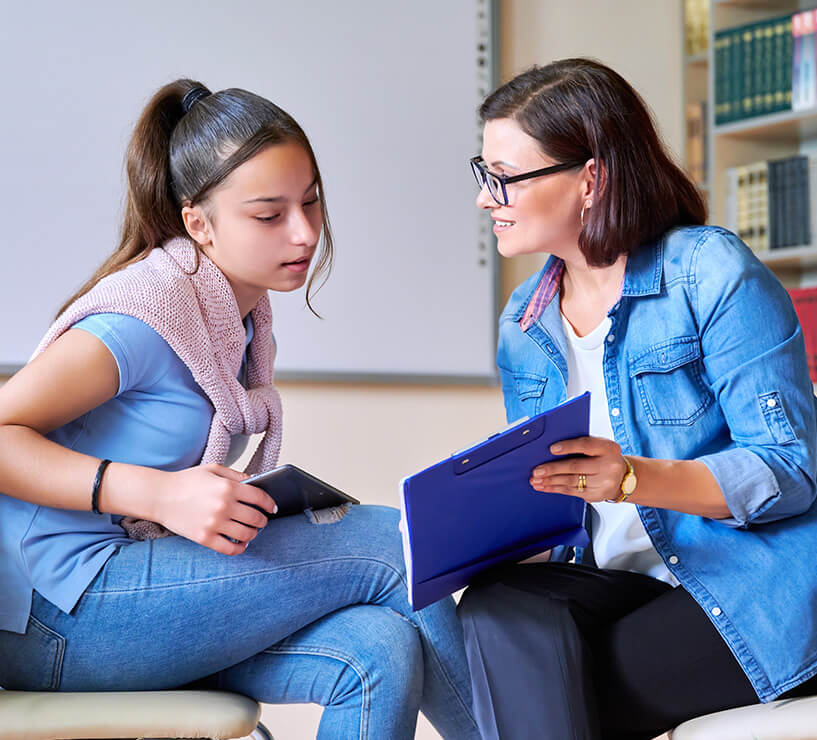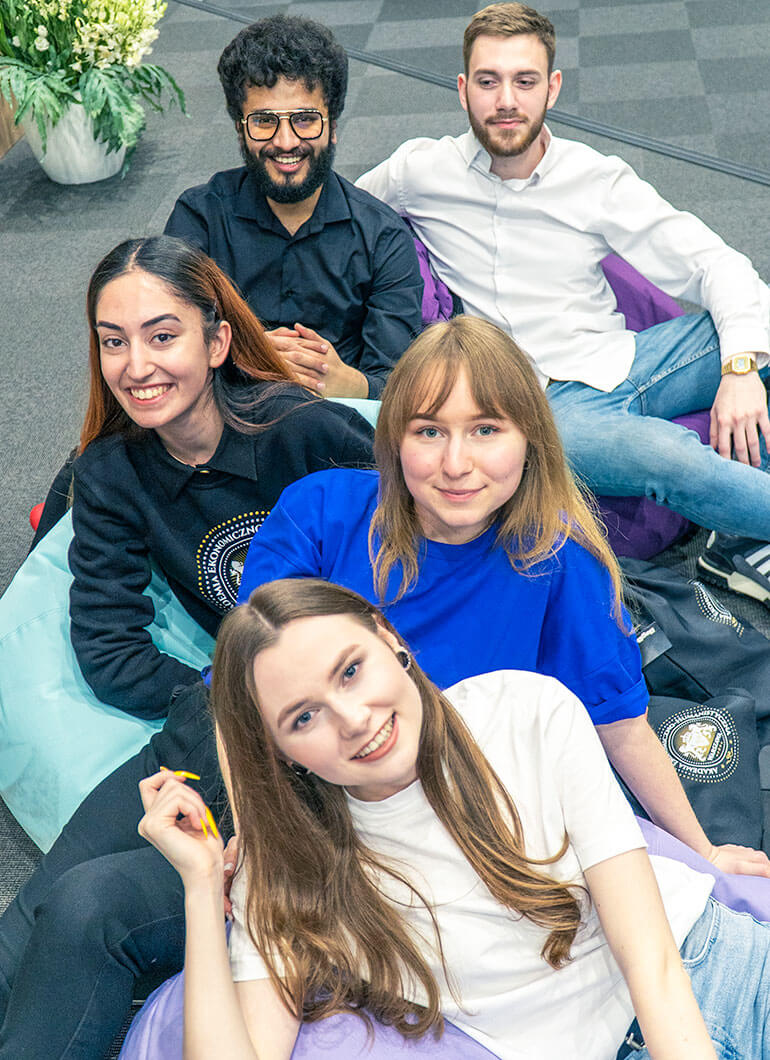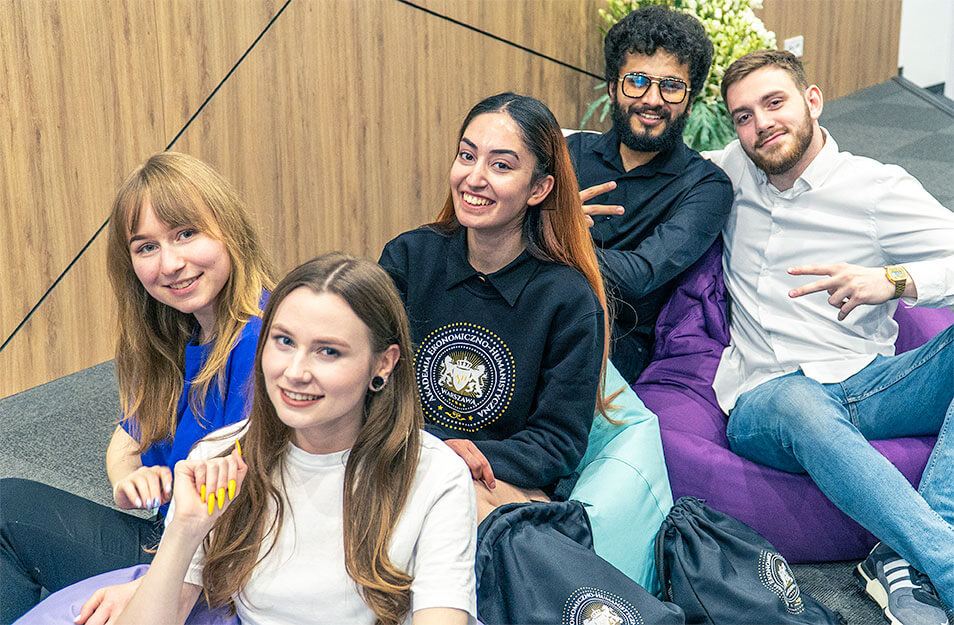Correctional Rehabilitation with Teaching Credentials
Undergraduate (Bachelor)
Correctional Rehabilitation
Why choose this field of study?
Correctional Rehabilitation is a complex process involving the restoration of appropriate behavior, norms, and patterns in people who have committed criminal acts or who show tendencies toward actions with a high degree of social harm. Do you want to obtain the education that will help you become a professional in the field of correctional rehabilitation? Do you want to have a real impact on the interactions in rehabilitation institutions and take an active part in the social readaptation of people from the most difficult, dysfunctional backgrounds? Do you feel confident in your psychological skills to help socially maladjusted people? Are you unafraid of the challenges associated with working in prisons, the judiciary, and crime prevention? If so, Correctional Rehabilitation (undergraduate) at the VIZJA University is the program for you!
During your studies, you will delve into key topics from various social sciences, such as psychology (e.g., social, educational, psychopathology), anthropology, criminology, and law (e.g., criminal, custodial, family). You will also acquire in-depth knowledge of rehabilitation systems in Poland and around the world and become familiar with the latest methods and rehabilitation programs. What is particularly important, you will complete exciting internships, numerous workshops, and competency training that will prepare you for future employment in a practical way. During your studies, you will complete an additional module to obtain teaching credentials (94 hours), which will allow you to obtain full qualifications to work as a teacher in the field of correctional rehabilitation education. These qualifications are required to work as an educator, tutor, or teacher in all rehabilitation and penitentiary institutions.
Correctional Rehabilitation with Teaching Credentials – what sets us apart:
- You will become fully qualified to be a practicing teacher in the field of correctional rehabilitation education.
- During practical courses, you will acquire the psychological competencies necessary for future work with rehabilitees.
- You will learn from leading academics and long-time practitioners in the field of correctional rehabilitation.
- Instead of writing a traditional bachelor’s thesis, you will complete an original social project on correctional rehabilitation.
- You will be able to complete professional internships in institutions and centers with highly effective rehabilitation programs.
- Study in an international community! (VIZJA University was recognized as the most internationalized university in Poland by the Perspektywy University Ranking).
Correctional Rehabilitation – what can you do after graduation?

As a graduate of the bachelor’s degree program in Correctional Rehabilitation at the VIZJA University, you will be equipped with the knowledge and social competencies to work in:
- prisons (e.g., as a prison educator) and the judiciary (e.g., as a probation officer, mediator, or expert witness)
- institutions for rehabilitation and crime prevention
- non-governmental organizations and foundations dealing with social pathology prevention, outreach, social assistance
- correctional institutions and special education centers
- juvenile shelters, daycare centers, youth educational centers, or youth sociotherapy centers
This kind of specialized education will be a great asset if you are planning a career in the uniformed services (e.g., Prison Service, Police, Municipal Police). You can also set up your own business, running a private facility in the field of correctional rehabilitation and prevention of social pathologies.
This program
is for you if:
You are an empathetic and communicative person, and at the same time, courageous, determined, patient, and resistant to stress.
You possess exceptional social sensitivity and feel that working with the most “difficult” people is your calling.
You want to pursue a profession whose meaning is to help excluded individuals who have turned to crime, or those at risk of delinquency.



Admission rules and regulations
Note: important information for 2025 candidates
Please read carefully the application procedures in line with the changes introduced by the Polish Ministry of Science and Higher Education in 2025.
Programme and structure of studies
Undergraduate studies
(bachelor’s degree)
Bachelor’s degree program in Correctional Rehabilitation with Teaching Credentials focuses on providing students with specialized theoretical knowledge and professional skills, preparing them to work with socially maladjusted people, those at risk of social exclusion, or those incarcerated in penal institutions. Graduates receive teaching credentials (qualification to become a practicing teacher in the field of correctional rehabilitation education), as students: – will complete extended education in special education (30 hours) – will take part in a placement at an educational institution (30 hours) – will complete an educational internship in a rehabilitation-focused educational institution (120 hours) – will earn a total of 192 ECTS credits (an additional 12 credits for teaching credentials).
FIRST YEAR OF STUDY
In the first year, students explore the social sciences, such as law, psychology, social communication, and anthropology, which are key to understanding the function and process of correctional rehabilitation. They also attend their first field-specific courses and attend workshops to develop professional and social skills.
SEMESTER I
| Subject name | Cummulative amount of ECTS points | Cummulative amount of hours (FT/PT) |
|---|---|---|
| Health and Safety | 0 | 8/8 |
| Academic Skills | 1 | 15/8 |
| Introduction to Philosophy / Anthropology (Elective) | 5 | 35/20 |
| Organization and Management Theory | 5 | 30/24 |
| Fundamentals of Social Communication | 4 | 30/24 |
| Introduction to State and Law Studies | 5 | 30/24 |
| Introduction to Psychology | 5 | 30/24 |
| General Pedagogy | 5 | 30/16 |
SEMESTER II
| Subject name | Cummulative amount of ECTS points | Cummulative amount of hours (FT/PT) |
|---|---|---|
| Sports and Recreation | 0 | 30/0 |
| Foreign Language I (Elective) | 2 | 30/16 |
| Basic Sociology | 3 | 30/16 |
| Biological Foundations of Behavior | 3 | 30/24 |
| Social Pathologies | 5 | 60/32 |
| The Polish Resocialization and Penitentiary System | 4 | 30/16 |
| Introduction to Criminology | 5 | 60/32 |
| Educational Psychology | 4 | 30/24 |
| Resocialization Pedagogy | 4 | 60/32 |
SECOND YEAR OF STUDY
The second year includes courses dealing with specific issues of correctional rehabilitation. Students also learn during practical courses the ins and outs and methodology of correctional rehabilitation and penitentiary work.
SEMESTER III
| Subject name | Cummulative amount of ECTS points | Cummulative amount of hours (FT/PT) |
|---|---|---|
| Sports and Recreation | 0 | 30/0 |
| Foreign Language II (Elective) | 2 | 30/16 |
| Family and Guardianship Law | 3 | 30/16 |
| Criminal Law | 5 | 60/32 |
| Interpersonal Training / Intrapsychic Training (Elective) | 3 | 30/16 |
| Resocialization and Penitentiary Systems Around the World | 4 | 30/16 |
| Psychosocial Aspects of Imprisonment | 3 | 60/32 |
| Human Developmental Psychology | 5 | 30/24 |
| Social Psychology | 5 | 30/24 |
| General Didactics (e-learning) | 2 | 30/30 |
| Voice Emission | 2 | 30/30 |
SEMESTER IV
| Subject name | Cummulative amount of ECTS points | Cummulative amount of hours (FT/PT) |
|---|---|---|
| Foreign Language III (elective) | 2 | 30/16 |
| Crisis Intervention / Mediation (elective) | 4 | 60/32 |
| Penitentiary Studies | 3 | 30/16 |
| Probation | 3 | 30/16 |
| Self-Defense Training / Resocialization Through Sport (elective) | 3 | 30/16 |
| Methodology of Resocialization and Penitentiary Work I | 5 | 60/32 |
| Individual, Community, and Family Diagnosis | 5 | 60/32 |
| Preventive Programs in Resocialization | 5 | 60/32 |
| Special Education | 1 | 15/15 |
| Legal and Organizational Foundations of the Education System | 1 | 15/15 |
| Pedagogical Skills Workshop | 2 | 30/30 |
THIRD YEAR OF STUDY
In the third year, students focus mainly on developing practical skills by participating in internships and workshops. They also carry out a training module in general teaching preparation. As part of their bachelor’s thesis, they carry out their own social project on a selected topic from the field of correctional rehabilitation.
SEMESTER V
| Subject name | Cummulative amount of ECTS points | Cummulative amount of hours (FT/PT) |
|---|---|---|
| Foreign Language IV (elective) | 2 | 30/16 |
| Psychopathology I | 3 | 30/24 |
| Personality Psychology / Psychology of Individual Differences (elective) | 3 | 30/24 |
| Probation Service | 2 | 30/16 |
| Project Preparation Methodology | 2 | 30/16 |
| Methodology of Resocialization and Penitentiary Work II | 4 | 60/32 |
| Intership I (elective) | 14 | 360/360 |
SEMESTER VI
| Subject name | Cummulative amount of ECTS points | Cummulative amount of hours (FT/PT) |
|---|---|---|
| Basics of Psychological Support / Nonviolent Communication (elective) | 2 | 30/16 |
| Psychopathology II | 3 | 45/24 |
| First Aid | 1 | 15/8 |
| Prison Educator | 3 | 60/32 |
| Career Education and Counseling in Resocialization | 3 | 30/16 |
| Internship II (elective) | 14 | 360/360 |
| Social Project | 4 | 30/16 |
The content of the study program may change as a result of efforts to improve the quality of education and adapt the teaching offer to the current challenges of the labor market. Each change is approved by the University Senate and introduced with the aim of preparing students for their future careers in the best possible way.
Tuition fees
Fixed tuition - flexible payments
By choosing to study at VIZJA University, you can be sure that the tuition fee will not change throughout the duration of your studies. You can pay the tuition fee once for the entire year of study or spread over a semester payment. This allows you to decide how you want to plan your expenses.

Fees (academic year 2025/2026)
EU&OTHER COUNTRIES GROUP
| Year of study | Annually | Per semester* |
|---|---|---|
| I | 2600 € | 1450 € |
| II | 2600 € | 1450 € |
| III | 2600 € | 1450 € |
*Semester payment is possible from the second year of studies.
OTHER COUNTRIES
| Year of study | Annually | Per semester* |
|---|---|---|
| I | 3600 € | 1950 € |
| II | 3600 € | 1950 € |
| III | 3600 € | 1950 € |
*Semester payment is possible from the second year of studies.
EU and other countries group
This group includes citizens of the countries member states of the European Union and the following countries citizens: Azerbaijan, Belarus, Bosnia and Herzegovina, Montenegro, Georgia, Kazakhstan, Kosovo, Kyrgyzstan, Latin America, Macedonia, Moldova, Norway, Russia, Serbia, Tajikistan, Turkey, Turkmenistan, Ukraine, Uzbekistan.
Other countries
The citizens of all the remaining countries.
Study in Polish!
Do you want to study at VIZJA University in Polish? It is possible! We have prepared a special program for international students to acquire the skills necessary for active study in Polish and for academic, social and everyday life in Poland.
The Comprehensive Polish Language Program for International Students is:
- part of The VIZJA University Foundation Program, which is a comprehensive preparation for starting regular Bachelor's or Master's studies in Polish at VIZJA University
- a course aimed at two groups of international students: students with knowledge of a Slavic language (Russian, Ukrainian, Czech etc.) and students without prior knowledge of any Slavic language
- a chance for immersion in Polish society and culture, authentic experience of life in Poland and broad career prospects on the Polish labour market
More details coming soon!
Scholarships - easier than you think

While studying at VIZJA University, you can take advantage of a wide range of financial support from the state budget and European funds, as well as benefit from special discounts with VIZJA University discount program
You can submit most scholarship applications quickly and easily through your online account.
In the academic year 2023/2024, VIZJA University awarded 800 Rector’s Scholarships, ranging from PLN 400 /month to PLN 1000 /month, depending on the average or achievements. For outstanding sport, artistic or scientific achievements, the Scholarship Committee awarded scholarships of PLN 600 /month.
Detailed information on the possibility of applying for the Rector’s Scholarship is available in the dean’s system.
A sports scholarship may be awarded to a student who excels in sport achievements at least national level. In addition we also encourage our students to take part in additional support programs- eg. the National Academic Representation.
Young sportsmen can count on financial support in the amount of PLN 600 /month.
Detailed information on the possibility of applying for sports scholarship is available in the dean’s system.
A scholarship for people with disabilities may be awarded to a student who has a disability certificate, a disability degree certificate, a ZUS certifying physician’s certificate, a disability group certificate or a certificate of permanent or long-term incapacity to work on a farm.
In the 2023/2024 academic year, depending on the degree of disability, 350 scholarships for people with disabilities were awarded, ranging from PLN 1700 /month to PLN 1900 /month.
Detailed information on the possibility of applying for a scholarship for people with disabilities is available in the dean’s system.
The allowance is a form of emergency financial assistance. Any student who found himself temporarily in a difficult life situation resulting from random events beyond the student’s control can apply for it.The allowance may be granted twice in one academic year, and the allowance is not granted twice for the same random event.
In 2024, we granted 51 allowances for a total of PLN 255 000. The allowances, depending on the student’s situation, were paid in the amount of PLN 2,000 to PLN 5,000 at a time.
Detailed information on the possibility of applying for the allowance is available in the dean’s system.
2023/2024 academic year
800 Rector’s Scholarships
51 allowances
350 scholarships for people with disabilities
12 500 000 PLN was spent in 2023/2024 on scholarships
PLN 1,890,289.35 was spent in 2019/2020 on scholarships
PLN 2,911,662.50 was spent in 2020/2021 on scholarships
PLN 4,158,177.00 was spent in 2021/2022 on scholarships
PLN 7,829,950.00 was spent in 2022/2023 on scholarships
Rector’s Scholarship – highest average: 5,44





